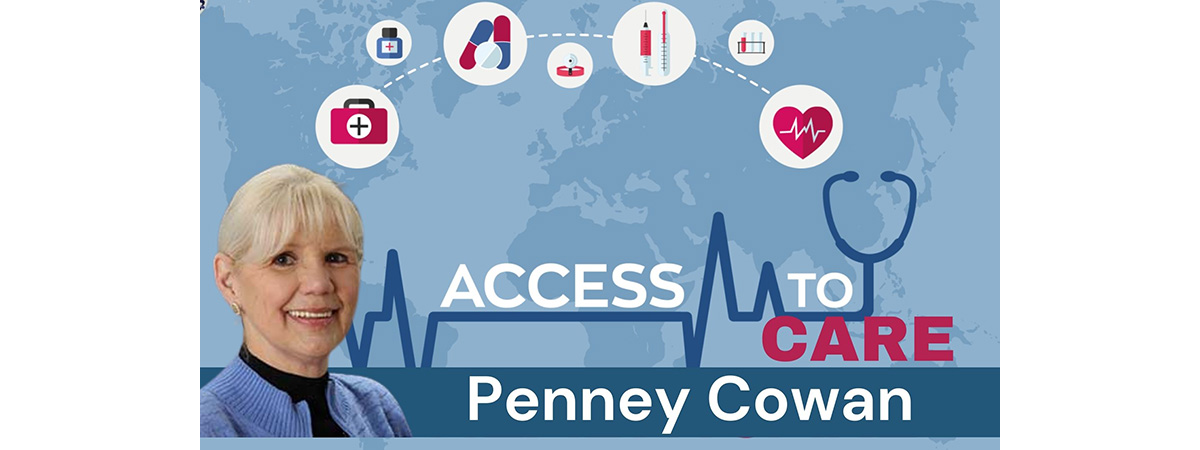Access to Care: Impact on Your Health
Penney Cowan
For many of us access to care is not something that we struggle with or even give much thought. We may have a great health care insurance or live in a country where you have universal health coverage. But for the more than three billion people who lack any kind of health care it becomes life threatening to them and their families.
According to report from the World Health Organization (WHO) in November of 2022, up to 3.5 billion people – almost half the world’s population – lack access to the health services they need, with almost 100 million people being pushed to extreme poverty each year because of out-of-pocket expenses for health care. Those of us with access to health care may not think about how lucky we are to have a primary care provider who we can reach out to when needed.
The WHO defines access to health care as all people have access to the full range of quality health services they need, when and where they need them, without financial hardship. It covers the full continuum of essential health services, from health promotion to prevention, treatment, rehabilitation and palliative care. That is the basic reason for the need for Universal Health Care (UHC) on a global level. So how do we improve access to care for every person no matter where they live, the resources they have or the ability to pay.
Access to comprehensive, quality health care services is important for promoting and maintaining health, preventing and managing disease, reducing unnecessary disability and premature death, and achieving health equity for all. Imagin what it would be like to see a loved one suffering and you were powerless to do anything about it? You lacked the needed medications to fight a simple infection that could turn out to be life threating if left untreated. Instead, you would have to do the best you could with limited knowledge and resources available while they suffer. Heartbreaking!
In the real-world access to health care is not always possible. There are many factors that come into play when accessing health care called social determinates. Social determinants of health are the conditions in which people are born, grow, live, work and age that shape their health. Addressing social determinants of health is important for improving health and reducing longstanding disparities in health and health care.
Access to health care means having the timely use of personal health services to achieve the best health outcomes. Since 1946, the right to health care including basics like access to care, safe drinking water, and adequate housing has been internationally recognized as a fundamental human right. Yet sadly, achieving Health for All in the midst of climate change, the rise of chronic disease, unprecedented migrations and other global challenges is more difficult than ever. Health For All will require shared goals and large-scale collaboration. The 17 global ambitions represented in the United Nations Sustainable Development Goals (UN SDGs) serve as both an urgent call for action and a collective ‘blueprint’ for a better future. They are:
1. No poverty
2. Zero hunger
3. Good health and well-being
4. Quality education
5. Gender equality
6. Clean water and sanitation
7. Affordable and clean energy
8. Decent work and economic growth
9. Industry, innovation and infrastructure
10. Reduced inequalities
11. Sustainable cities and communities
12. Responsible consumption and production
13. Climate action
14. Life below water
15. Life and land
16. Peace, justice and strong institutions
17. Partnership for the goals
Each of these goals play into the access to care that any individual may have. It will take an effort by all of us to work together to being to create changes that will improve the access to care worldwide. But for now, it is my hope that we each do our part where we live to set one small goal that will have a positive impact on the access to health care in our communities. It can be something as small as checking on your neighbor weekly, teaching a child to read, sharing a nutritious meal, talking to your policy makers and government officials about the state of health care where you live, or if you have the knowledge and resources developing a free clinic in an underserved area to provide once a week wellness checks. The problem is overwhelming but we need to take action now if we are to improve access to care for each person.


